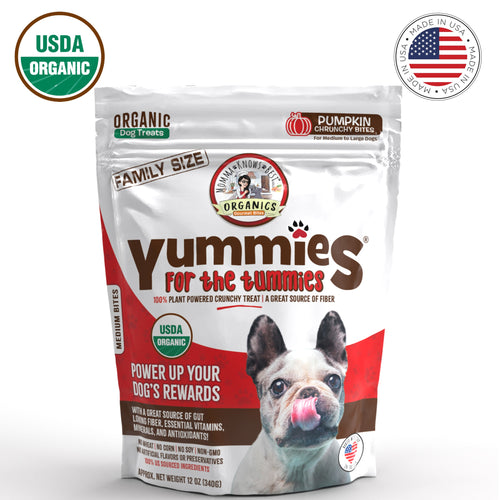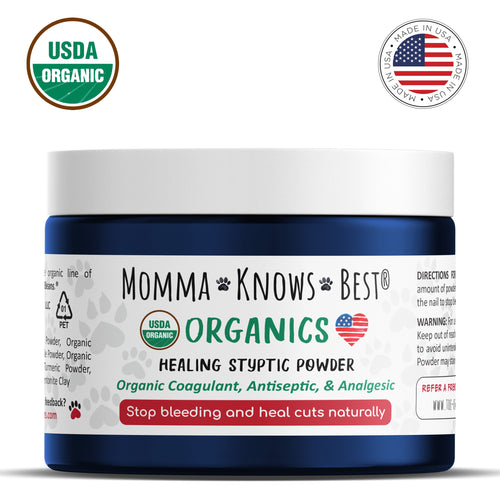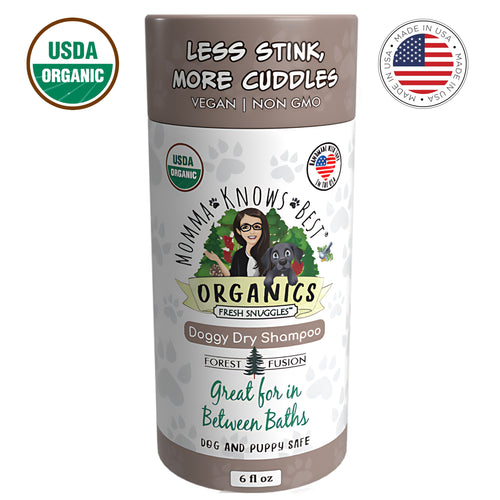Your Cart is Empty
Free 2-5 day delivery | No minimum purchase required
Free 2-5 day delivery | No minimum purchase required
 by K Marie Alto Updated
6 min read
by K Marie Alto Updated
6 min read
On October 11, 2023, the Food and Drug Administration (FDA) approved the drug Ayradia for the treatment of Giardia duodenalis in dogs. Ayradia is the first FDA-approved animal drug for treating this infection in dogs.
Often referred to simply as Giardia, it is a microscopic protozoan parasite that affects the gastrointestinal tracts in canines.
This single-celled organism resides in the small intestine and is responsible for a condition known as Giardiasis,
Symptoms of giardiasis generally including:
Symptoms normally begin one to two weeks after becoming infected; it can last anywhere between two and six weeks although potentially lasting longer in those with weakened immune systems.
The life cycle of Giardia involves two distinct stages: cysts and trophozoites.
The cysts are shed in the feces of infected dogs and can survive in that environment, allowing for easy transmission.
Dogs typically contract Giardiasis by ingesting contaminated water or foods, although direct contact with infected feces can also contribute to transmission.
When a dog ingests the cysts, they transform into the trophozoite form inside the small intestine, which attaches to the internal lining of the intestine.
This causes damage, interferes with nutrient absorption, and results in gastrointestinal problems, including symptoms such as lethargy, weight loss, vomiting, and diarrhea.
Giardiasis is a common parasitic infection in dogs, particularly in environments with compromised levels of hygiene. Diagnosis can be challenging, as symptoms may resemble those of other gastrointestinal issues.
While not all infected dogs show signs of illness, younger dogs or those with weakened immune systems are more likely to experience symptoms.
Giardia can be spread to other animals and is a parasite with zoonotic potential, meaning it can spread to humans as well. While you’re unlikely to become infected with Giardia from your dog, it's still best to practice good hygiene to minimize your risk of exposure.
Diagnosing Giardiasis in dogs involves a complete history, physical examination, and specific tests to check for evidence of infection.
Veterinarians typically use fecal tests to detect the presence of Giardiasis in the dog's stool.
Typical treatment involves antiparasitic medications, in addition to thorough cleaning and management of the surrounding environment to prevent reinfection. The treatment goal is to eliminate the infection, but it can be challenging to do so.
Follow-up evaluation after the completion of treatment is advisable to assess how effective the initial intervention is.
Ayradia (metronidazole oral suspension) is the first FDA-approved animal drug for treating Giardia infections. Metronidazole is not a new medication, up until this point it’s been an approved human drug, used off-label to treat dogs with a Giardia infection.
This new version of the medication has some changes compared to its predecessor.
Ayradia has both antibacterial and antiprotozoal properties. The sponsor, Virbac Animal Health, based in Fort Worth, Texas, conducted two key studies on Ayradia:
Male and female beagles were given either Ayradia or sterile water orally twice per day for five consecutive days.
The study counted the Giardia trophozoites in each dog's small intestine four days after the final treatment. Ayradia was found to be over 99% effective at reducing Giardia trophozoites in the treated dogs compared to the control group.
A similar field study was conducted using shelter and privately owned dogs with naturally occurring infections.
Dogs received either Ayradia or only the inactive ingredients in Ayradia (i.e. no metronidazole) for five consecutive days.
Fecal samples were obtained before and after treatment, showing that dogs treated with Ayradia had significantly fewer Giardia cysts than those in the control group, confirming Ayradia was more than 99% effective at reducing Giardia cysts.
Safety studies were also conducted to address two factors: higher than label dose and duration and labeled dose and duration.
Dogs that had the higher than label dose experienced a higher incidence of ear erythema (redness of the skin and ear) and diarrhea, but these issues resolved without treatment.
Additional neurologic effects have been associated with the use of Ayradia oral suspension at high doses in dogs.
Therefore, it should be used with caution in dogs that have hepatic dysfunction, which refers to impaired liver function. Hepatic dysfunction can occur due to various causes such as toxicity, infection, and liver disease.
When the liver loses more than 75% of its function, it is deemed to have hepatic failure, leading to a range of symptoms impacting other organ systems.
Common signs of hepatic dysfunction in dogs include diarrhea, vomiting, anorexia, lethargy, polyuria (increased urination), polydipsia (increased thirst), ascites (abnormal fluid accumulation in the abdomen), jaundice, diarrhea, neurological abnormalities consistent with hepatic encephalopathy.
Virbac recommends avoiding contact with a treated dog's saliva for five minutes after administration.
Ayradia is administered orally at 25 mg per kg of body weight, using the supplied syringe, twice daily for five consecutive days.
Ayradia is only available by prescription from a licensed veterinarian, as professional expertise is essential to properly diagnose Giardia duodenalis infection in dogs and monitor the safe use of the product, including treating any adverse reactions.
As Ayradia is a skin sensitizer, it can potentially cause allergic reactions in humans. While it is best practice to keep dog food away from children, pet owners should be careful to keep dog food that has been mixed with Ayradia away from children. In other words, while treating your pup with Ayradia, be sure to pick up uneaten food and wash their bowls more frequently.
Ayradia has been shown to effectively reduce post-treatment counts of the Giardia parasite in dogs. However, it's essential to consider the potential risks and benefits of any medication.
While Ayradia can be an effective treatment for Giardia duodenalis infection in dogs, its use should be carefully evaluated in consideration of the individual dog's health and any potential risks.
With the approval of this drug, it is an exciting step forward in the treatment of Giardia duodenalis which can be a prominent presence in dogs in certain environments.
It's important to note that even healthy animals may harbor a number of subclinical infections, such as Giardia duodenalis, which can result in the infection being underdiagnosed.
Because asymptomatic dogs can still spread the infection, it’s important to practice good environmental hygiene measures and prevent dogs from drinking surface water or eating feces.
At Toe Beans, we value the special bond you share with your dog. We believe in the profound impact this connection has on every dog parent's life, and we’re dedicated to helping you nurture and preserve that bond.
Our mission is to ensure every dog enjoys the happiness and health they deserve. We are proud of our U.S.-based research, development, and manufacturing capabilities, and our unwavering commitment to delivering exceptional, planet-nurturing and organic products for both dogs and cats made right here in America. We believe in the superiority of American manufacturing.
With 98% of Toe Beans products made on American soil, we prioritize sourcing raw materials from thoroughly vetted and screened U.S. suppliers.
This rigorous scrutiny ensures that your dog enjoys the world’s cleanest and safest wellness supplies, free from toxins, heavy metals, and other harmful substances often found in overseas-manufactured pet products.
Let’s face it—many pet supply chains are flooded with unsafe, toxic products, especially at large retail chains and popular eCommerce sites. We’re here to change that.
We believe your dog’s health is directly linked to the quality of the products they encounter—whether it’s treats, toys, grooming supplies, or food (coming soon). At Toe Beans, we’re passionate about ensuring your dog lives the high-quality and vibrant life nature intended.
Choose non-toxic, safe dog wellness supplies made in the USA with Toe Beans.
K. Marie is an animal lover, wife, kitty mom, dog auntie, writer, and co-founder of Toe Beans, a proud American family-owned online boutique pet supplies store focused on the improvement of the life of furry family members via pet parent education, better products, and advocacy. She has over 20 years of experience as a pet momma. She loves sharing her personal journey and experience as a pet parent via her blog and Facebook page where she currently has more than 50K followers (@furrytoebeans) and counting :-). Read more
Comments will be approved before showing up.
by K Marie Alto December 18, 2023 5 min read

Organic Dog Treats | Pumpkin | Family Size | 12 oz
$12.99

Styptic Powder for Dogs and Cats | USDA Organic | Made in the USA
$13.99

Dry Dog Shampoo | USDA Organic | Made in the USA
$19.95